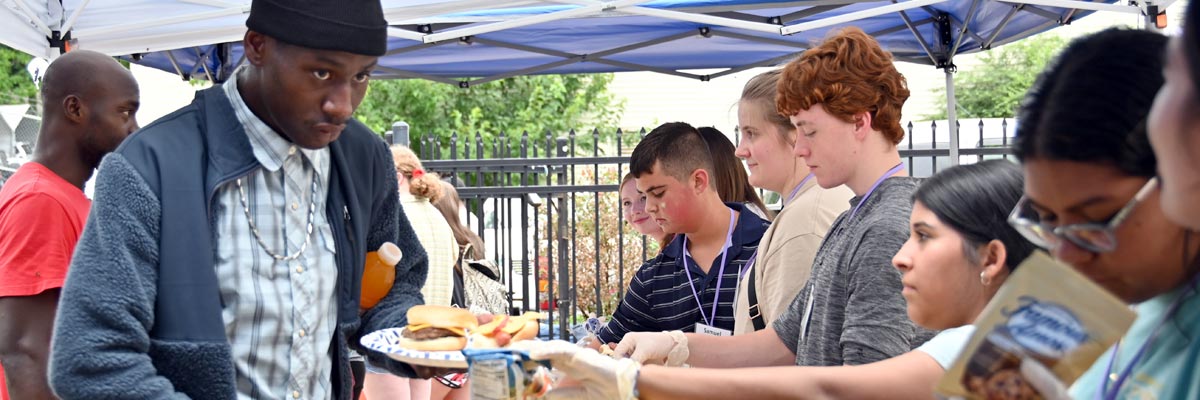Official Website of the
Catholic Diocese of Little Rock
Sixth Sunday in Ordinary Time, Year B
Published: February 15, 2015
Bishop Anthony B. Taylor preached the following homily during the confirmation Mass at St. Mary Church in Helena on Sunday, Feb. 15, 2015.

Bishop Taylor
One of the most consistent teachings not only of Pope Francis, but also of Pope Benedict XVI, St. John Paul II and their predecessors is that faithfulness to Jesus requires us not only to: 1.) proclaim the dignity of every human being created in the image and likeness of God, but also 2.) to work to protect the God-given dignity and rights of all people without exception, but naturally 3.) with preferential concern for the poor, weak and vulnerable, those who need our help the most. You know this as well as I do.
Well in today's Gospel we have Jesus healing a man whom society has stripped of his human dignity because of bad health. He is a leper; he has a repulsive, fatal disease that caused the soft tissues of the body literally to rot away — you can't imagine the stench. Lepers were completely excluded from society because their disease was contagious and greatly feared. Today's equivalent would be Ebola.
It's hard to think of human dignity when you're face to face with a leper, but that's exactly what Jesus did. And he didn't just heal him from a safe distance, he touched him without all the protective gear we use for Ebola. He touched a man whom society had declared untouchable — a fearless, loving act that not only restored the man's physical health, but also affirmed his human dignity.
He loved them and affirmed the human dignity even of those who had hateful attitudes and behaviors, and even when he already knew they wouldn't respond.
Remember how inspiring it was when Pope Francis embraced and even kissed a man at one of his public audiences who had a horribly disfigured face? That was what he was doing: affirming his dignity as a fellow human being, who because of his disgusting appearance suffers rejection and so has a greater claim on us than others who are not so disadvantaged.
And notice, many times the true opposite of love is not hate or indifference, but simply fear, and in the end, cowardice: fear to love, cowardice when faced with unpleasant things, fear of rejection, fear of getting hurt, fear of vulnerability, fear of what others might think — ultimately fear of freedom.
I'm not saying that we should not take necessary precautions, but by touching this leper Jesus shows us that love can bring forth from us the courage needed to overcome our fears and the other barriers that separate us and thereby begin to identify with the other person, his destiny now becoming our destiny!
Jesus fearlessly and lovingly breaks through barriers to restore human dignity not only to the marginalized like this lepers, but also to foreigners (the Samaritans), to sinners (the woman caught in adultery), to the disabled (the man blind from birth) and to criminals (the thief crucified with him) — and unsuccessfully to his adversaries (the religious authorities) and torturers (the Roman soldiers).
He loved them and affirmed the human dignity even of those who had hateful attitudes and behaviors, and even when he already knew they wouldn't respond. He opened his heart to welcome into his life those who needed him most; making their destiny his destiny ... and to follow Jesus, we must do the same.
Yesterday was Valentine's Day and so in line with today's Gospel, we recall that the only Valentine's gifts that really matter are those that affirm the human dignity of those we love, in this case our spouses, parents and other loved ones. It's no good to give roses and chocolates on Valentine's Day and then revert to being demeaning the other 364 days of the year!
If we can't even muster up sacrificial love year round for troublesome family members, how in the world are we ever going to rise to the occasion when faced with today's equivalent of the lepers of Jesus' time? Jesus has broken the power of sin and death, and in every Mass we commit ourselves to continue his work of redemption in the real circumstances of our world today.




